The Goo Goo Dolls have been making music for thirty years, starting as a rough and raw hard-rockin’ band and eventually becoming more accessible and hitting it big with songs like “Name”, “Iris”, and “Slide”. Over the years, they have sold over 10 millions albums, including 1995’s A Boy Named Goo and 1998’s Dizzy Up the Girl; their latest album Boxes came out in May 2016.
The partners throughout this journey have been guitarist/singer John Rzeznik and bassist/singer Robby Takac. This interview with Takac was for a preview article for noozhawk.com for their concert on 7/16/16. It was done by phone on 6/9/16. (Bob Mussel photo)
Jeff Moehlis: What can people look forward to at your upcoming concert?
Robby Takac: You know, lots of hits. Probably a few where you’ll go, “Oh man, they did that one, too?”, which is pretty cool. A couple of cool new cover songs. A handful of songs off of our new record, which we’re super excited about. And a super wicked awesome light show that we’re paying too much for. [laughs] No, I’m just kidding.
It’s going to be a great tour. You know, it’s the summer, man – people love to come see rock shows. And you pair that up with Collective Soul – they’ve got a whole bunch of songs you’ve heard on the radio your whole life. It’s pretty cool.
JM: You mentioned the new album. Can you tell us a bit about that?
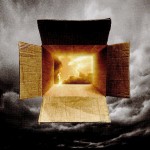
RT: Sure. The album’s called Boxes – it came out a few weeks ago. The first single’s called “So Alive”. It’s been doing really, really well. We just released a video for it that we shot in our hometown of Buffalo with a local crew and cast. We shot it in an old abandoned train terminal next to Johnny’s old house where he grew up. You know, it’s an exciting new album. It feels like a little bit of a chapter, like a page-turner for us, which I think is awesome after 30 years of making music together.
JM: Any crazy stories that you’re willing to share from the early days of the band?
RT: [laughs] Oh, my God. There’s so many, man. But I have a 4-year-old. Most of them I would not be willing to share [laughs].
We used to stay in people’s houses every night. When you let yourself into people’s worlds like that night after night after night after night like that, some interesting things definitely happen to you. I’ll save it for the book if I ever really need money [laughs].
JM: In the early days you guys often got compared to The Replacements. Do you think that was a fair comparison?
RT: I always thought they should’ve compared us to Husker Du. But, you know, John’s voice kind of sounds a little bit like Paul’s [Westerberg], and we loved The Replacements. We loved Husker Du, The Ramones… We loved all these bands. So it never felt weird to us. It always felt like, “Yeah, damn straight!” We were just glad people knew who The Replacements were, quite honestly. Everybody seems to know who they are now. “Oh, hey, The Replacements!” Yeah, right [laughs].
JM: Eventually you and John co-wrote a song with Paul Westerberg. What was that experience like?
RT: Well, we had toured with them. We had opened for them for maybe a month, back with our old drummer so it must’ve been over 20 years ago. So we kind of knew them a little bit. We’d hung with them and stuff.
So Johnny just sent a bunch of demos that we did to Paul, and said, “You wanna help us out and write some lyrics for these?” He put them in his 4-track and sent two of them back with lyrics. One of them was the song called “(Dancing) In Your Blood”, which we didn’t actually use his lyrics for, but I hear that there’s a version of it floating around on YouTube. It’s pretty cool. The other one was “We Are the Normal”, which he wrote the lyrics for. We ended up recording that one.
That was really our first song that kind of got recognized by people, besides one of our goofy cover songs from our early records. It was really quite a moment for us, to be able to have that whole collaboration happen. But it did happen in the mail [laughs]. It wasn’t like we were all sitting in a room or anything. It was good to see them out playing again.
JM: I imagine when you write your book about crazy stories, there will be a whole chapter devoted to touring with The Replacements, right?
RT: There will be a couple in there, actually. That was a trip. We actually did Paul’s first sober tour, so it probably wasn’t as crazy as some of them. But answer – yes, there were some crazy moments.
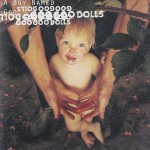
JM: I probably first heard about you guys when the album A Boy Named Goo took off. Looking back twenty years later, what are your reflections on that album?
RT: Yeah, that was the first big record that we had. That sold a couple million copies. But it always sort of felt like our band wasn’t all that big. It sort of felt like the song was big – “Name” was a really big song. We were a little misrepresented by that song, I guess.
You know, we would do a radio station thing at a club, so it’d be like 6:00 in the afternoon or 7:00 in the afternoon. You know, it was a huge song. We’d set up to play, and we’d come out to play our first song – we’d open with something from Superstar Car Wash or something, and people would be like, “What is this? Wait a minute, this isn’t that song we know from the radio.” There’d be all these secretaries against the back wall that had heard that song at work. Eventually we’d play “Name”. Of course we saved it for last, because we knew everyone would leave the second we were done.
That song got really big, but the band itself wasn’t huge. We had a little bit more money, we had a bus and stuff, but it wasn’t really until [the follow-up album] Dizzy Up the Girl where we turned the corner, and the band actually started playing in front of thousands of people, and taking a real solid run at it.
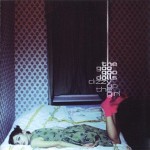
JM: After the success of “Name”, how did you change your approach for Dizzy Up the Girl?
RT: Well, we had a little bit more knowledge. That was sort of always what happened with us. We would get through the process and go, “Ah, OK. I get this now. I get this now. I get this now.” I think that whole Boy Named Goo process of making the record, and camping out in the studio, and working with people that weren’t necessarily like your buddies and stuff, we learned an awful lot. We started to bring in some guys, like if we wanted a slide guitar solo and we did it, we knew that there was someone who could do it better. We didn’t feel weird about asking them to come in and try it, to make the song better. To us, that was something we had never done before. It was almost weird to me. It was almost like, why would you do that?
But when we started to meet some of these people and see what they had to offer to these songs that we were writing, it really felt right. So we did more of that. Benmont Tench from [Tom Petty and] The Heartbreakers came and played some stuff, and Jamie Muhoberac, a pretty famous keyboard player, came and played on some stuff. Tim Pierce, a guitar player. Yeah, you know, we started to just open our minds a little bit on how to make records. I think that growing process is something that we try to maintain. Until we stop making records I think we will be trying to maintain that.
JM: What advice would you give to an aspiring musician?
RT: It’s actually much different than it would’ve been ten years ago. What I would tell people right now is don’t be afraid to do something else at the same time, and be proud of it. Because it’s really hard to make money doing this right now. But be smart about it and figure out what that thing might be that allows you to still go out and make your music and tour and do what you need to do, and put your mind to that. Because it’s really, really difficult right now. There’s not a lot of free rides out there right now. You’ve got to have an apartment to come back to, or at least a girlfriend [laughs] you can move in with. So that’s what I would tell people right now.
The amount of outlets that are out there to make music with, to make creative statements with… you know, you can do a video for 400 dollars that looks as good as one that cost a hundred thousand dollars 15 years ago. Same thing with albums. The resources are so unbelievably bountiful, and don’t be afraid to learn how to do all that stuff. Because if you don’t know how to do it, you’re going to have to pay someone to do it for you. So, play it smart, man. That’s what I would tell people right now. And stick to your guns.
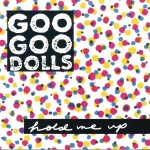
JM: We’ve talked about The Replacements, and you mentioned Husker Du – these great Minneapolis bands. There’s another Minneapolis artist that you guys covered – Prince [“Never Take the Place of Your Man”, on the 1990 Goo Goo Dolls album Hold Me Up]. Did you ever get any feedback from him? Did he ever say, “Hey guys, great cover song”?
RT: No, he never even said, “Hey man, thanks for the check!” [laughs] No, I mean I’ve always been a Prince fan. One of my dear, dear friends who passed away last year – a guy named Lance Diamond who actually sang on a couple of our records – he and I found incredible kinship in Prince. It was a gateway for me to learn about a lot of other music that I really didn’t know much about growing up as a suburban white kid in western New York. He really opened my eyes to a lot of things, very early on. Yeah, man, Prince figured out a way to bridge a gap for that generation. Fuckin’ bravo – I love those records, man.

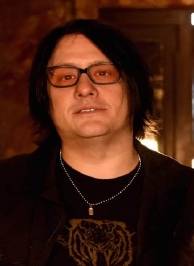
Discussion
No comments for “Interview: Robby Takac”